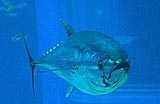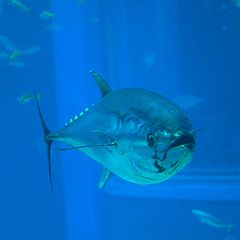European Fisheries Reform
By Emily Rose Nelson, RJD Intern
Overharvesting is a term known all too well to fisheries. Fish stocks are depleted internationally, subsequently resulting in ecosystem degradation as a whole. The European Union has been under a failing system of management for four decades. Due to insufficient scientific data, vague policies, and a general culture of non-compliance EU fisheries are in urgent need of reform. Three out of four stocks are overfished, 82% of stocks in the Mediterranean and 63% in the Atlantic. Formed in 1971, the European Common Fisheries Policy (CFP) has brought about minimal changes to European fisheries until recently. The European Commission published a much needed reform proposal in 2011 that brings hope for the sustainability of fisheries and the protection of marine biodiversity. The CFP plan of action presents a number of different strategies that have the opportunity to put EU fisheries back on track in the next ten years.
Maximum sustainable yield (MSY) has been thought of as the overall goal for fisheries management. This describes a situation where fish stocks are at optimal population size, maximizing their reproduction, thus allowing fishers to continually get the most from their harvests. In 2002, at the Johannesburg World Summit on Sustainable Development, a goal was set to return fish stocks to MSY producing levels by 2015. The European Commission is working toward this goal, recognizing the progress to come with MSY’s. EU fisheries management currently revolves around maintaining stocks at minimum levels to avoid collapse. MSY brings about the largely different idea of maximizing stocks for the long term.
Another radical concept the CFP suggests is a discard ban. Bycatch creates a major problem in fisheries when large percentages of what is caught ends up back in the ocean, but dead. In the past restrictions have been imposed on fishing techniques to reduce bycatch. However, more concerned about the economic value of their catch than possible sanctions, fisherman failed to accept these restrictions. The Commission has proposed a discard ban on all fisheries, the strongest incentive to reduce bycatch to date. This policy requires vessels to land and register their entire catch, which means including bycatch in their quotas. In order to give fisheries time to adjust, this new policy will be phased in species by species. However, this will not work at all unless it is monitored very closely, such as through cameras or onboard observers.
In addition, the introduction of transferable fishing concessions changes the ownership methods of fish stocks. Often times, when the quota is used up that fishery closes. This model can be described as a “race for resources.” Unaware of when the quota will be closed, fisherman try to get as much as they can as fast as they can. This often results in overexploitation and large amounts of bycatch. The Commission has proposed a solution to this problem, a system of transferable fishing concessions. Within this system specific areas of fishing will be distributed among eligible concession holders. They then own a “share” of the allowable catch; there is no rush to outcompete other fishers. With this system comes the opportunity to buy and sell fishing concessions. Some worry that this could lead to the elimination of small-scale industry, but the benefits of this system outweigh that concern. According to the Commission transferable fishing concessions have shown significant positive contributions to eliminating overcapacity and improving the fishing industry economically.
These are just some of the policies outlined in the Commission proposal for reform. If implemented in full it provides the potential to achieve the European Strategy Framework Directive of good environmental status in Europe’s marine environment by 2020. The Fisheries Council (decision making body) is working against the Commission to weaken the reform of the CFP. Throughout 2012 European Parliament and the Fisheries Council have debated the Commissions proposal. By 2013 the final, reformed CFP will be completed and placed into action. The application and consistent management of a sustainable European Common Fisheries Policy is the only way to protect the resources of European waters.
REFERENCES:
Salomon, Markus, and Karin Holm-Miller. “Towards a Sustainable Fisheries Policy in Europe.” Fish and Fisheries (2012).
“Reform of the Common Fisheries Policy.” European Commission. N.p., 19 Sept. 2012. Web. 19 Sept. 2012.





Leave a Reply
Want to join the discussion?Feel free to contribute!